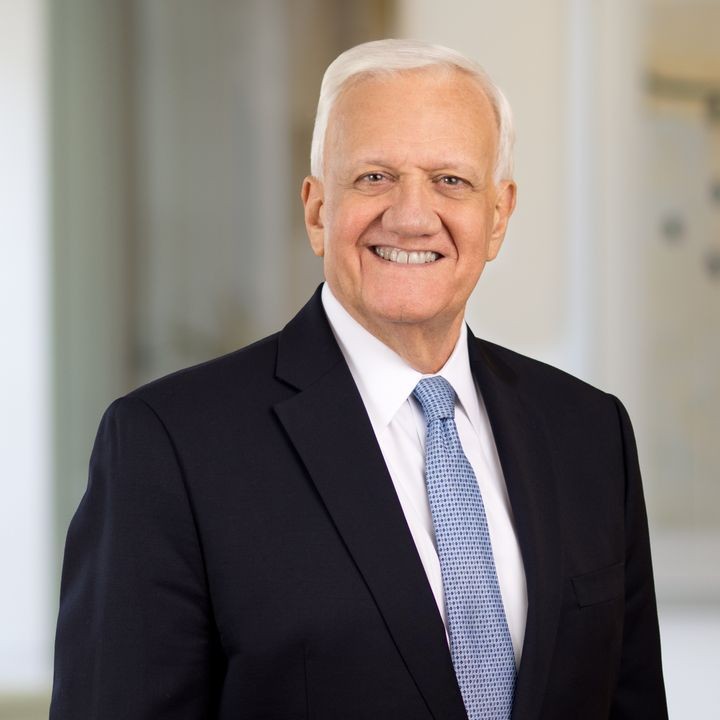Trump’s Government Contracts Rebrand: From “Government” Procurement to “Just-GSA” Procurements
What You Need to Know
Key takeaway #1
While the EO proposes significant changes, the immediate impacts on current and prospective government contractors could be modest depending on what is considered a “common good or service” and what authority the customer agencies retain to continue certain procurement activities. If these changes disrupt active contracts, contractors should know their rights in the event of performance delays, changes, and terminations.
Key takeaway #2
Contractors may expect fewer contracting opportunities and solicitations in the near future, as the EO requires GSA to cull efforts that it considers duplicative or redundant.
Key takeaway #3
Contractors may notice increased closures of procurement offices across numerous agencies as procurement functions shift to GSA.
Client Alert | 2 min read | 03.21.25
On March 20, 2025, the White House issued Executive Order (“EO”), “Eliminating Waste and Saving Taxpayer Dollars by Consolidating Procurement,” to consolidate domestic civilian contracting for “common goods and services” within one agency—the General Services Administration (“GSA”). The EO defines “common goods and services” as those described in the Category Management system first developed as part of a previous effort, dating back to 2014, to coordinate spending across the government.
The EO asserts that “standardized procurement functions should be carried out in the most efficient and effective manner possible for the American taxpayer,” because, under the current system, “multiple agencies and agency subcomponents separately carry out these same functions in an uncoordinated and less economical fashion.”
The EO’s procurement consolidation effort sets forth four key deadlines.
Within 14 days of the EO’s issuance, by April 3, 2025, the Director of the Office of Management and Budget (“OMB”) is required to issue a memorandum to executive agencies for implementation, and then within 30 days of the EO’s issuance, by April 19, 2025, implement the following:
- The OMB Director must designate the GSA Administrator as the executive agent for all governmentwide acquisition contracts (“GWACs”) for information technology (“IT”). The Administrator must, however, defer or decline its executive agent designation when doing so is necessary to ensure continuity of service or is otherwise appropriate.
- The Administrator, on an ongoing basis, must rationalize agencies’ use of IT GWAC vehicles by identifying contracts deemed duplicative, redundant, or inefficient for elimination.
Within 60 days of the EO, by May 19, 2025, all agency heads, in consultation with their respective procurement officials, must submit to the Administrator proposals for GSA to conduct “domestic procurement with respect to common goods and services for the agency, where permitted by law.”
Within 90 days of the EO, by June 18, 2025, the Administrator must submit to the OMB Director a comprehensive plan to procure “common goods and services” across “the domestic components of the Government, where permitted by law.”
Insights
Client Alert | 4 min read | 04.14.25
Foreign Corrupt Practices Act (“FCPA”) enforcement has been fairly predictable for many years as the Fraud Section of the Department of Justice (“DOJ”) has maintained exclusive authority over investigating claims and bringing enforcement actions in federal courts across the country. President Trump’s recent pause on FCPA enforcement, the first of its kind since the statute was passed in 1977, has created significant uncertainty for individuals and businesses operating internationally regarding the future of FCPA enforcement. While DOJ is in the process of assessing what the future of FCPA enforcement, state attorneys general are stepping in. On April 2, California Attorney General Rob Bonta issued a Legal Advisory (the “Advisory) to California businesses explaining that violations of the FCPA are actionable under California’s Unfair Competition Law (UCL). The announcement signals a shift in FCPA enforcement where states may take the lead and pursue FCPA enforcement through their state unfair competition laws.
Client Alert | 4 min read | 04.10.25
Hikma and Amici Curiae Ask Supreme Court to Revisit Induced Infringement by Generic “Skinny Labels”
Client Alert | 1 min read | 04.09.25
Client Alert | 12 min read | 04.09.25









